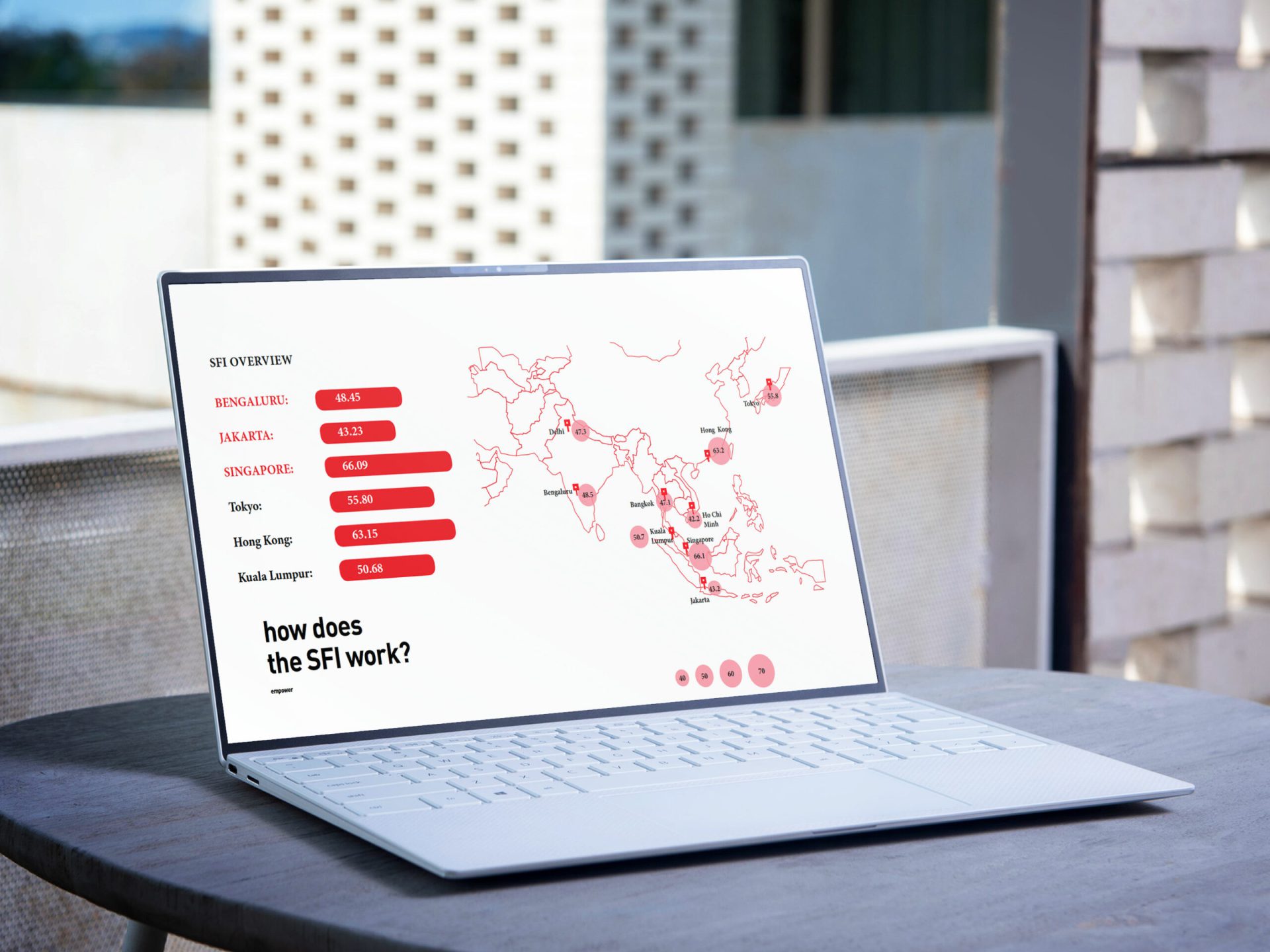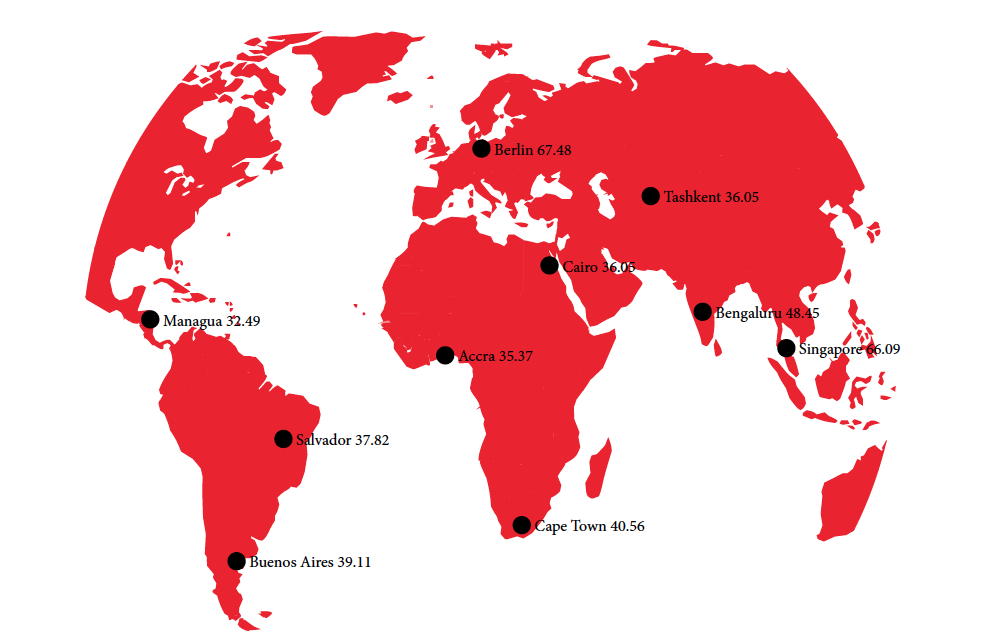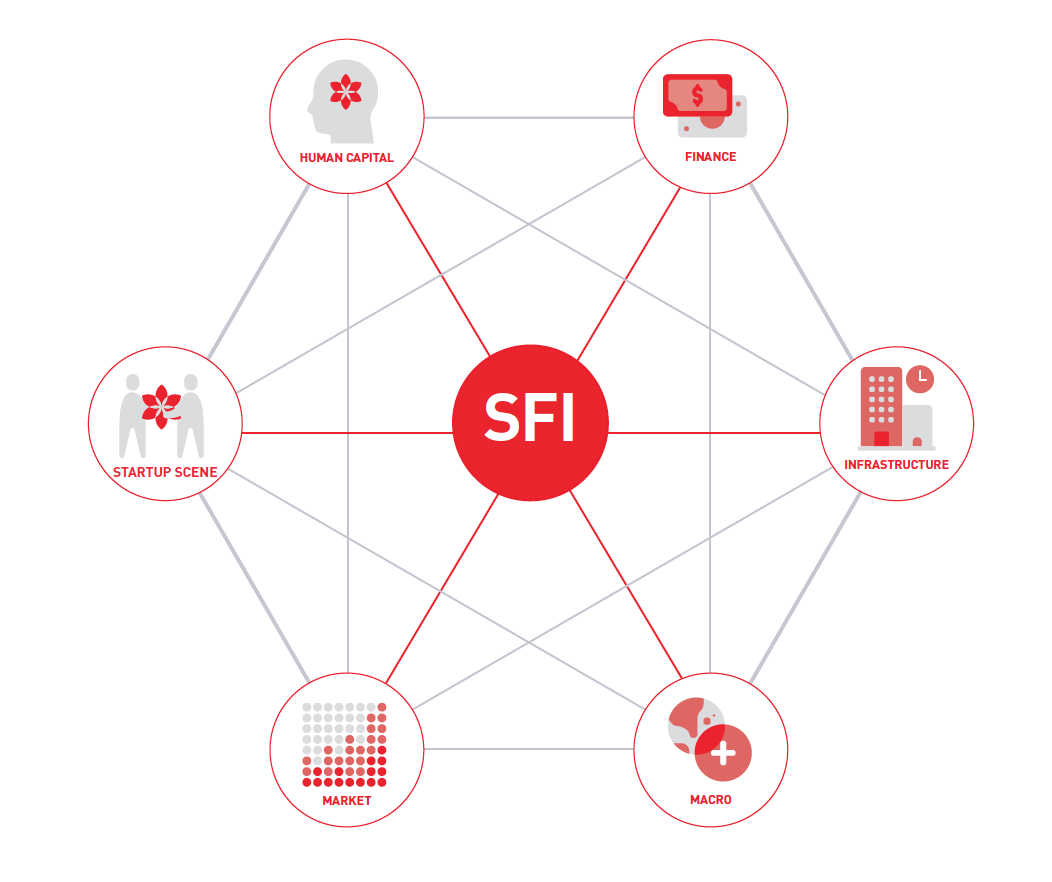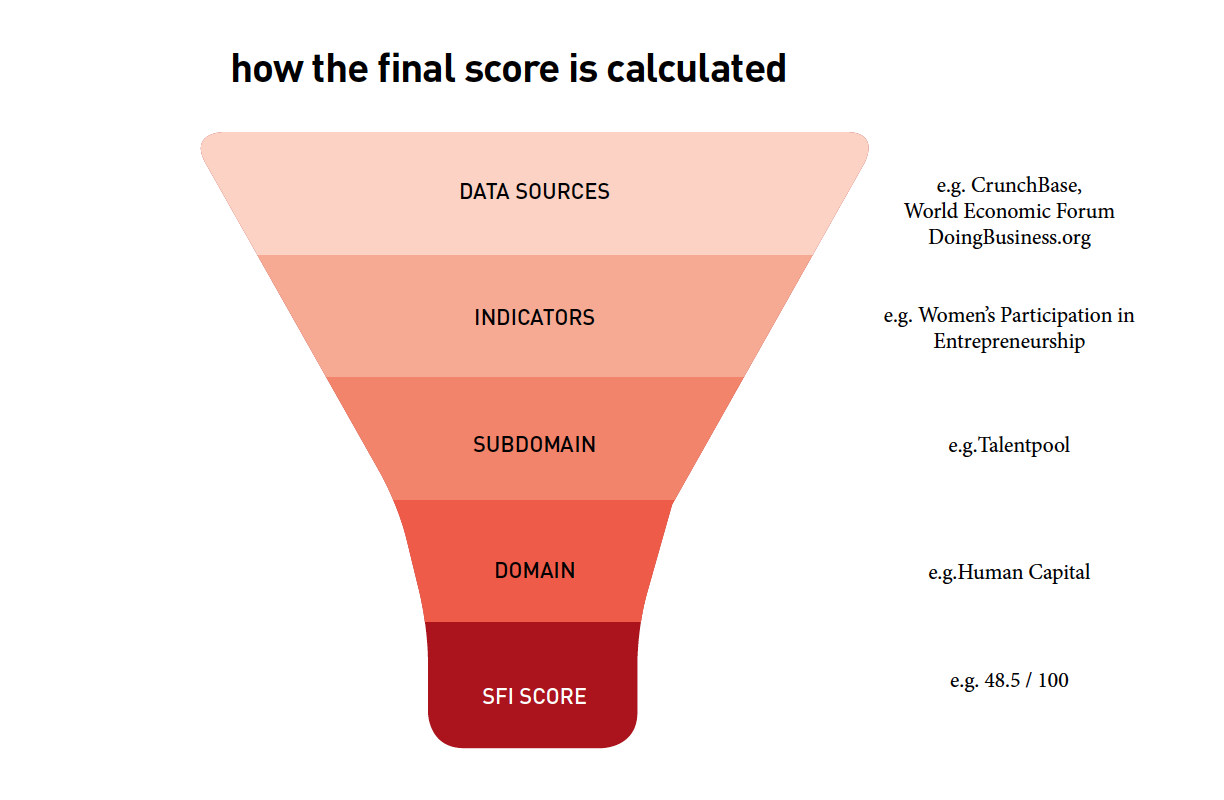
How The Startup Friendliness Index (SFI) Works
The SFI was created by enpact in 2017 in an effort to understand startup ecosystems and provide systematic data to assess them. We love data here at enpact’s Data & Research sector and we’re glad you are interested in learning more about our data. Let’s dive in.
What is the Startup Friendliness Index?
the SFI measures how well a city supports entrepreneurship
In the field of entrepreneurship, startup ecosystems play an important role. A startup ecosystem is formed by entrepreneurs, startups in their various stages, and numerous other entities such as universities, investors, accelerators, co-working spaces, legal and financial service providers, and government agencies. Through the complex interaction of these players, a startup ecosystem has the capacity to empower entrepreneurs to develop new ideas and bring innovation to the market.
The composition and maturity level of startup ecosystems are essential components of the success rate for entrepreneurs and new enterprises. By understanding the strengths and weaknesses of a startup ecosystem, as well as the cultural context it finds itself in, enpact can offer targeted solutions and recommendations to policymakers on strengthening and growing startup ecosystems of their cities.
To achieve this, enpact has developed the Startup Friendliness Index, or SFI. We’ve designed the SFI to quantitatively compare ecosystems across the globe using objective measures of development and maturation. The SFI consists of six major domains.

How does the SFI work?
the SFI scores cities holistically, emphasizing interconnectedness
Each domain is vital for entrepreneurs and no city can support a startup culture without all six elements.
At the city level we measure:
Human Capital measures the quality of and access to educated or talented people to fill the workforce of a startup, to start their own enterprise, or a startup’s ability to pay for the right talent. This domain also analyzes the inclusiveness of a city, as the more economic opportunity there is for women and minorities to participate in the economy, the easier it is to find talent.
Access to Finance is crucial for the equity and advancement of any startup scene. It is the first hurdle any viable business must face, the pre-requisite for successful exits and the best way to inject more money and attention into an ecosystem.
The liveliness of the Startup Scene — from the number of hubs to facilitate connections, to the number of events and startups in a city, to the entrepreneurial culture of an ecosystem, each can play a role in encouraging entrepreneurs to dive in and to grow.
The Infrastructure of a given city is often a challenge for emerging economies. In the worst scenarios, this means that roads are unpaved or dangerous, internet access is spotty, and people experience shortages of water or electricity that make it hard to get by, let alone start a business.
On the country level we measure:
The political and legal context of a country, as well as crime and corruption, are measured in the Macro domain.
Lastly, the connectedness and performance of an economy’s Market play a role in a startup’s ability to expand both regionally and globally. This domain also looks at how well developed the digital market is, vital for startups whose business models rely on a digitally connected economy.

How to read the SFI
the SFI compiles normalized indicators into one objective score, regardless of location or culture
Three tips you should know to read our report:
- There are 90 indicators, divided into 6 domains and 17 subdomains. Each city receives a score for each indicator. The indicators are then aggregated into a domain score and a final SFI score.
- The data for the indicators are collected from reputable primary and secondary sources such as the World Bank or World Economic Forum.
- Each indicator is normalized on a scale from 0 to 100. The best performing city for a single indicator is given a score of 100. In a score such as the Pollution Index, for instance, Singapore is given a score of 100, meaning it has the least pollution of all cities in the index.
In any article, you may read about a score such as the Pollution Index. If you are curious about what goes into the score, the full index is available on our site for exploration

And to really learn more about startup ecosystems, check out our new magazine, empower!





